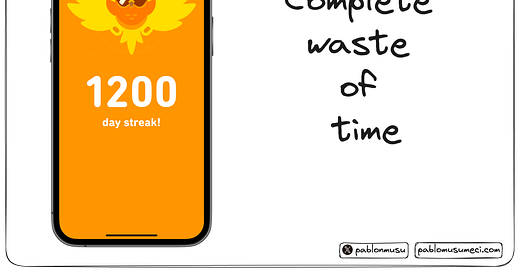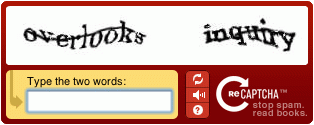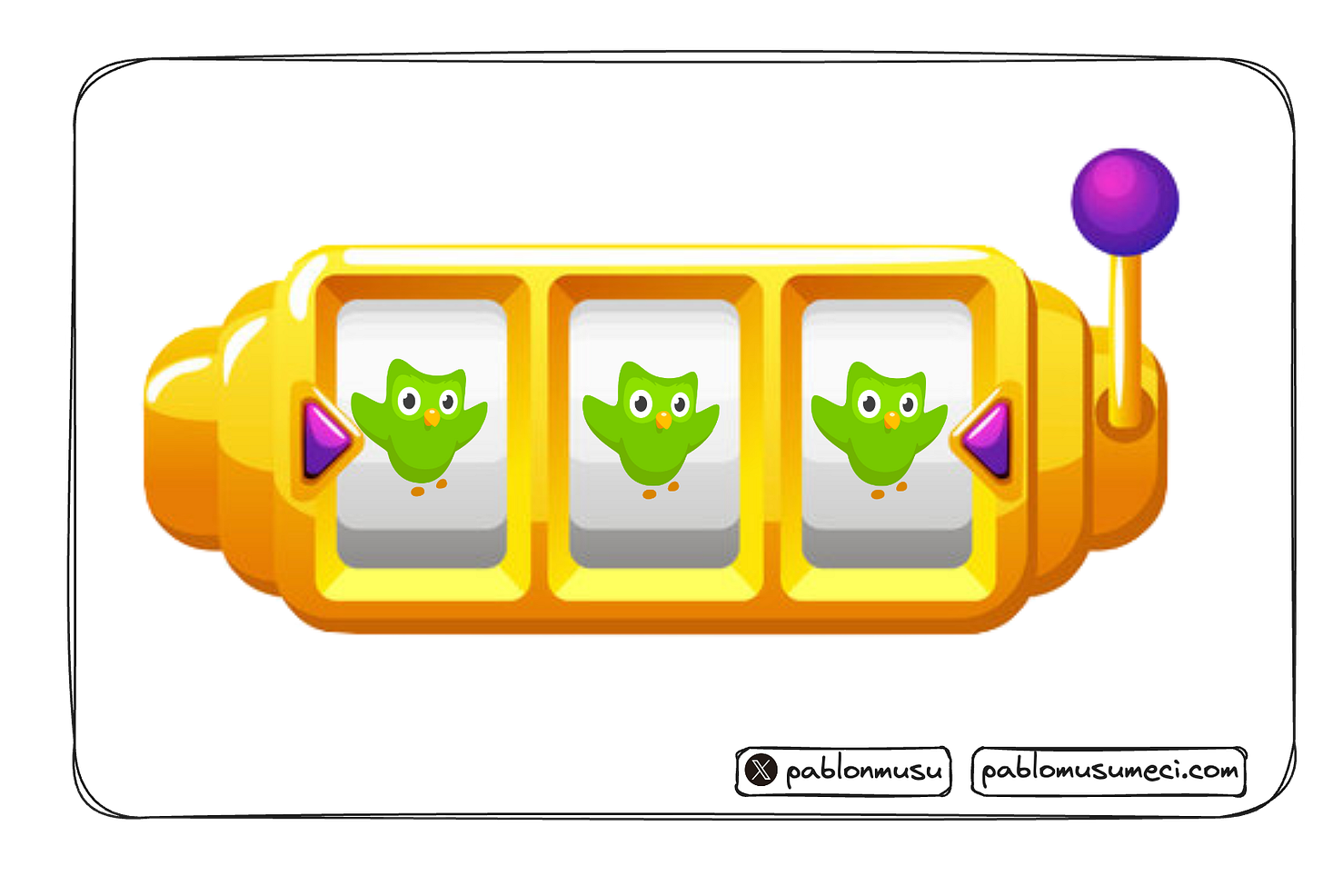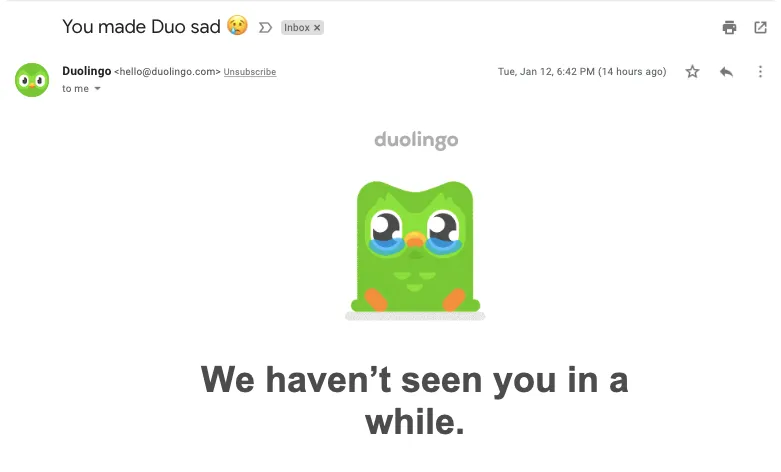Goodbye, Green Owl: Why I Broke My 1200-Day Duolingo Streak
Breaking Free from False Achievement (And Why You Might Want to Join Me)
For 1200 days straight, that little green owl stared at me expectantly from my phone screen. I dutifully tapped into Duolingo, racking up an impressive streak that got me compliments left and right.
Then I did something that shocked everyone – including myself.
I deleted the app.
Why would I throw away over three years of dedication? Let me take you on a journey that might make you reconsider your daily habits.
When The Product Is Free You Are The Product
Luis von Ahn, Duolingo's creator, is the puppet master pulling the strings.
Remember CAPTCHAs? Those annoying "prove you're not a robot" tests? Von Ahn created those too.
Here's what many don't know: every word you typed, helped to digitize old books—one word at a time.
It's a classic von Ahn move:
Get free labor (that's you)
Solve a tech problem (are you human?)
Accomplish a greater good (hello, digital libraries!)
Duo uses the same formula:
Get free labor (that's you again)
Solve a tech problem (get translations from humans)
Accomplish a greater good (teach people languages!)
Every time you tap through those cute lessons, you're not just learning – you're teaching. Your translations feed a massive language database, turning your answers into valuable data.
It's crowdsourcing on steroids.
Von Ahn's mission sounds noble: "Make language learning free and accessible for everyone." But let's pause for a second.
Are you the student here, or the teacher?
Are you using the app, or the app is using you?
The Addiction We Don't Talk About
We all know what addiction looks like, right? It's the smoker who can't quit, the gambler who can't walk away from the table. But what about the seemingly harmless habits that consume our time and energy?
Addiction is defined as not having control over doing, taking or using something to the point where it could be harmful to you.
My Duolingo streak had become exactly that - an addiction. I found myself opening the app not because I was excited to learn, but because I was terrified of breaking the streak. Sound familiar? How many times have you opened an app out of fear rather than genuine interest?
The Sunk-Cost Fallacy: Why Is It So Hard To Stop?
That voice in your head whispers, "I've invested so much, I can't quit now!" It's what keeps us in bad relationships, dead-end jobs, and yes - pointless app streaks.
Breaking my 1200-day streak felt first like watching years of effort vanish in an instant.
Now, get this: those days aren't erased. The learning still happened.
The streak is just a number, not a measure of your knowledge.
The Feel-Good Time Waster
Don't get me wrong, Duolingo isn't all bad. It's a fun way to start learning a new language. But let's call it what it is: a game.
It gives you a false sense of accomplishment. It's better than nothing but not better than many other productive activities.
We comfort ourselves by saying “I could be on Instagram instead of Duolingo”, which is a false dichotomy. There are a million other things you could be doing instead.
Duolingo wasn't actually teaching me anything new. The exercises became a mindless routine, enough to keep me tapping but not difficult enough to force real learning.
Think about it. When was the last time a Duolingo lesson made you stretch your brain? The algorithm is more interested in keeping you hooked than pushing for growth. It keeps you in a cozy bubble of easy wins and dopamine hits.
In the Duolingo casino, your time is the currency, and learning is the jackpot always out of reach. Each lesson is a pull of the lever, with streaks replacing cherries and crowns substituting for dollar signs.
Duolingo features include:
Making you feel productive (even when you're not)
Keeping you glued to your screen (hello, ad revenue!)
Guilt-tripping you into daily use
Duo’s Secret Sauce
Ever noticed how Duolingo looks like it escaped from a toy store? Bright colors, cute characters, and bite-sized lessons. It's no accident.
Why the Pixar movie design?
Because Duolingo is battling for your attention against digital crack dealers like TikTok and Instagram.
To compete, they've to cook their own addictive mix.
I realized I had stopped learning long ago. The exercises became mindless taps, just going through the motions, learning nothing new.
Time for some tough questions:
Is Duolingo serving you, or are you serving it?
What would you lose by quitting today?
What will you do? Will you keep tapping away at that comforting green owl, or will you spread your wings and fly toward freedom?
Sometimes, growth means saying goodbye to things that no longer serve us. Even a 1200-day streak.
The End-Game
As I wrapped up this post, I stumbled upon a game-changing revelation about Duolingo. That crowdsourced translation model? Dead and buried.
Luis von Ahn, Duolingo's mastermind, initially planned to use language learners to translate massive amounts of text. But he scrapped that idea for something bigger.
Now, Duolingo runs on a freemium model with a twist:
Ads? Pocket change, only 10% of revenue.
The real money comes from premium subscriptions.
Most paying users are from wealthy countries like the US and Canada.
Free users? They're often from developing countries, hungry to learn English.
Why the change? It's personal for von Ahn. Like me, he's from Latin America – Guatemala, to be exact. Growing up where opportunity is scarce, you learn fast: education is the golden ticket.
And why focus on English? English fluency is the biggest lever you can pull to skyrocket your chances of success. It's your key to unlocking literally half the internet and opens doors to countless job opportunities worldwide.
Von Ahn isn't just building an app. He's building bridges to opportunity.








